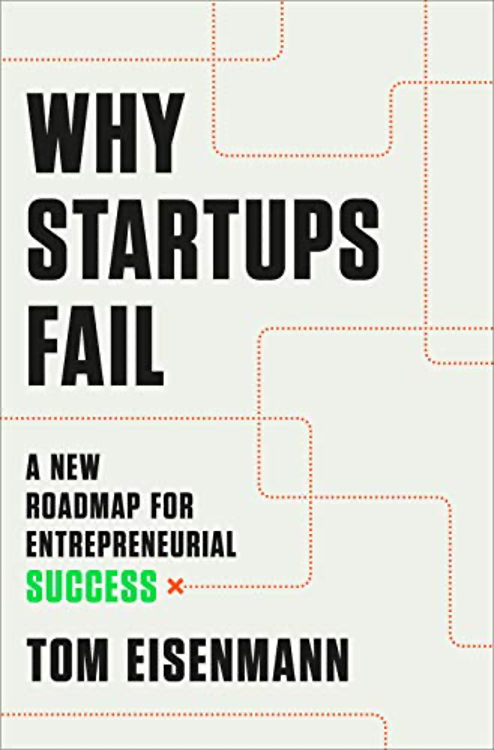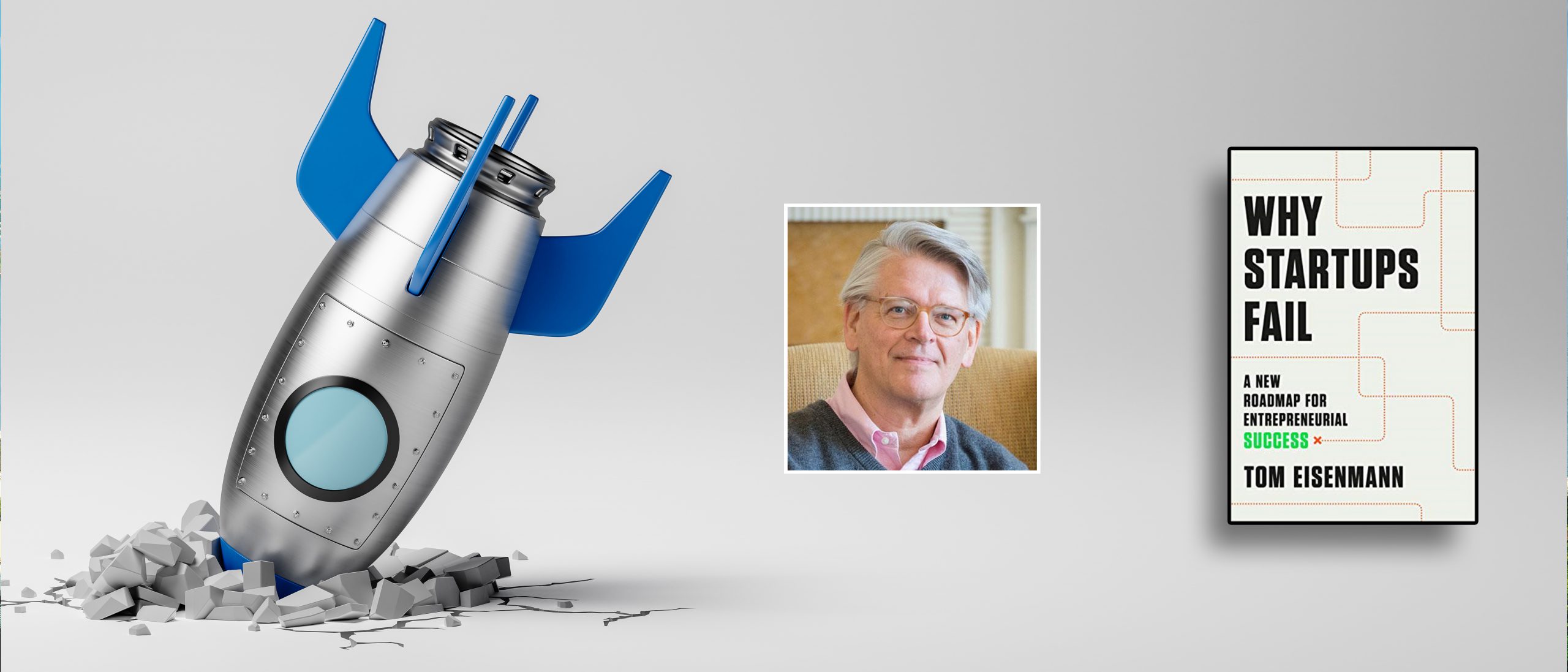9 out of 10 startups fail. This is a gloomy number. However, it has never stopped entrepreneurs from hedging their bets to create successful companies.
And I want to help entrepreneurs, whether they’re first, second, or third-time founders, increase their odds of success.
So this week, I talked to Tom Eisenmann about his new book, Why Startups Fail: A New Roadmap for Entrepreneurial Success. Tom is the Howard H. Stevenson Professor of Business Administration at Harvard Business School and holds the Peter O. Crisp Faculty Chair at Harvard Innovation Labs.

Tom shares his insights into why startups fail and how they can avoid them. It’s important to remember that these are not the only reasons why companies fail. But they are often why most startups fail.
Why Early-Stage Companies Fail?
1. Good ideas, bad bedfellows
Ideas are easy, execution is hard. If you assemble a bad team–team includes founders, early team members, and investors–it doesn’t matter how good the idea is you’ll run into serious trouble. Companies fail because they never got around to building a solid team that can execute.
2. Good team, bad idea
This is the opposite of (1). The team is star-studded but they never find a good idea or find product-market fit. As result, VCs lose faith and the startup runs out of money.
3. The false-positive
Early adopters are important to startups. They can help shape the trajectory of the company. However, single-mindedly focusing on early adopters can create products that are too complicated for mainstream users. A company that wisely avoided this was Dropbox.
Why Late-Stage Companies Fail?
1 of out 3 Series C companies and beyond don’t become profitable. So what are some ways to avoid failing as a late-stage company?
1. Speed trap
Growth is good, and learning to control that growth is crucial. Many companies fail because they grow too fast and their unit economics struggle. Additionally, clone products start eating away at their market share.
2. Help wanted
An early-stage company is dramatically from a late-stage company. Failure to make that transition can be detrimental. Companies need to find experts when transitioning to late-stage, otherwise, it’s a recipe for disaster.
3. Cascading miracles
A company requires multiple things to go right for their product to work. If one thing goes wrong, then the whole thing crumbles. So with each additional variable, it increases the odds of the product failing.

Bonus takeaways
Don’t skip the research, if you’re early stage. Talk to at least 20 people in your target segment, and find out what their pain points are.
If you’re a late-stage company, before you press the pedal to the metal find out what the speed limit is. Ask the following questions: Is the company is ready to scale? Do we have the team and the system to scale?

Often times, we only hear about successful companies because of survivorship bias. Tom sheds new light with Why Startups Fail. I recommend every entrepreneur read and absorb the lessons in this book.
If you prefer, you can listen to the episode in the embedded podcast player.
In addition to the above Youtube video and embedded podcast player, you can also listen to the podcast on:
